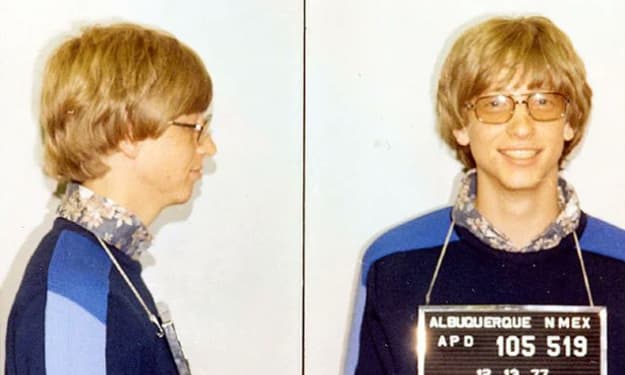The Art of Deception: A Look into the World of White-Collar Crime
Unravelling the Intricate Web of Financial Fraud and the Masterminds Behind It

This post was created with the support of OpenAI.
White-collar crime is a type of non-violent financial fraud committed by professionals and government officials, often involving complex schemes and a high degree of deception. These crimes can have far-reaching consequences, affecting not only the victims but also the economy and society as a whole. In this blog, we will delve into the world of white-collar crime, exploring the different types of fraud, the psychology of the perpetrators, and some of the most notorious cases in history. Join us as we unravel the intricate web of financial deception and the masterminds behind it.
Different Types of White-Collar Crime
Securities Fraud: This type of crime involves manipulating the financial markets through insider trading, accounting fraud, or false statements to investors. Examples include the Enron scandal and the Bernie Madoff Ponzi scheme.
- Embezzlement: Embezzlement occurs when an individual in a position of trust and responsibility misappropriates funds for personal gain. This can include employees stealing from their employers, politicians misusing public funds, or executives diverting corporate funds for personal use.
- Tax Evasion: Tax evasion involves the deliberate underreporting of income or overreporting of deductions in order to avoid paying taxes. High-profile tax evasion cases include those involving celebrities, such as Wesley Snipes and Martha Stewart.
- Money Laundering: Money laundering is the process of concealing the origins of illegally obtained money, often by transferring it through complex financial transactions to make it appear legitimate. This type of crime is often associated with drug trafficking, organized crime, and terrorism financing.
The Psychology of White-Collar Criminals
White-collar criminals are often driven by greed, ambition, and a desire for power and prestige. Many are highly intelligent and skilled at manipulating others and exploiting loopholes in the system. Some of the psychological traits commonly found among white-collar criminals include:
- Narcissism: A sense of entitlement and superiority, leading to a belief that they are above the law and deserving of the wealth and power they seek.
- Lack of Empathy: A disregard for the feelings and well-being of others, allowing them to rationalize their actions and justify the harm they cause.
- Risk-Taking: A propensity for taking risks and engaging in thrill-seeking behaviours, often driven by the excitement of pulling off a successful fraud.
Notorious White-Collar Crime Cases
The Enron Scandal: In 2001, Enron, an energy-trading company, collapsed after it was revealed that executives had been using fraudulent accounting practices to hide billions of dollars in debt and inflate the company's value. The scandal led to the largest bankruptcy in US history at the time and the conviction of several top executives.
The Bernie Madoff Ponzi Scheme: In 2008, it was revealed that Bernie Madoff, a former stockbroker and investment advisor, had been operating a massive Ponzi scheme, defrauding thousands of investors out of an estimated $65 billion. Madoff was sentenced to 150 years in prison for his crimes.
The Theranos Scandal: In 2018, Elizabeth Holmes, the founder of the blood-testing startup Theranos, was charged with multiple counts of fraud for misleading investors and patients about the capabilities of her company's technology. The case is still ongoing, with a trial scheduled for 2023.
Conclusion
White-collar crime is a fascinating yet devastating aspect of our modern society. The intricate schemes and deceptive tactics employed by these criminals highlight the need for continued vigilance and regulatory oversight to protect the public and maintain the integrity of our financial systems. By understanding the motivations and psychology behind white-collar criminals, we can better identify potential threats and develop strategies to prevent and combat financial fraud. As we continue to uncover and learn from the notorious cases of white-collar crime, we can work together to create a more just and accountable society, where the rule of law prevails, and financial deception is brought to light.
Thank you for taking the time to read our article!
If you enjoyed the content, please consider leaving a '<3' and Subscribe so you don't miss future releases!
If you wish to support us on our mission to provide free, weekly infotainment for you to enjoy, please consider pledging a small donation or leaving a tip - all donations help us to create our work and support us as creators.
If you wish to begin your Vocal journey, join the Vocal+ programme to get more for your work! Earn more per view, withdraw your profits quicker, access Vocal+ Challenges with prizes to be won weekly, and so much more by clicking here!
Let's start a conversation! Leave a comment on what you'd like us to discuss in future articles, or reach out on our Social Media Channels!
You're the reason we can continue doing what we love. We are forever grateful for your support!
About the Creator
People! Just say Something!
Quirky Writing created by Artistic Creativity and the power of AI with the goal of learning something new every day!
Facebook: https://www.facebook.com/PeopleJSS
Twitter: https://twitter.com/PeopleJSS






Comments
There are no comments for this story
Be the first to respond and start the conversation.